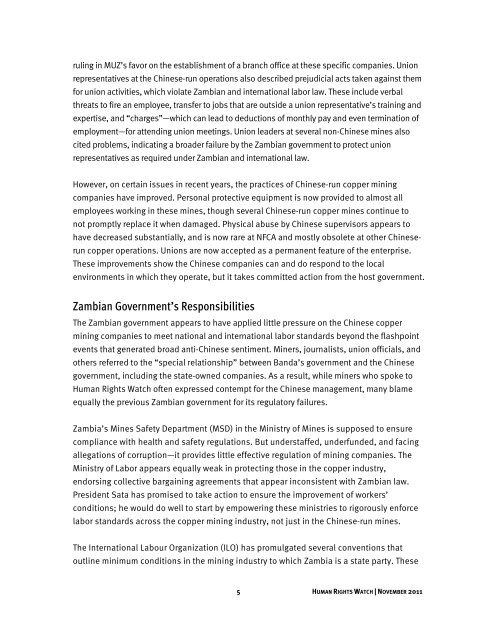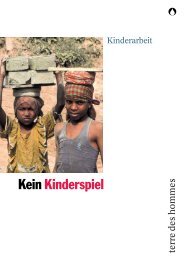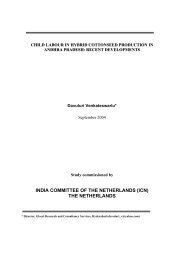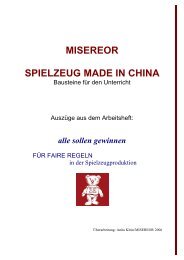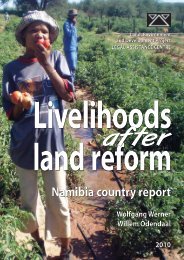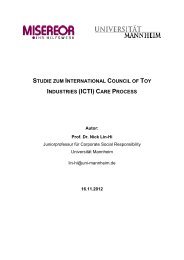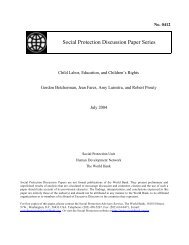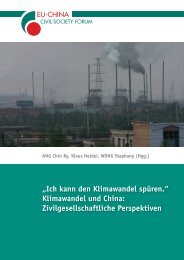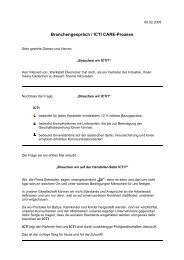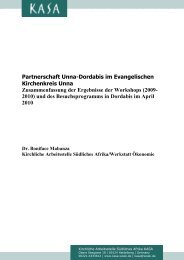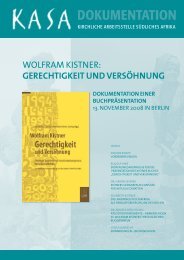“You'll Be Fired if You Refuse†- Human Rights Watch
“You'll Be Fired if You Refuse†- Human Rights Watch
“You'll Be Fired if You Refuse†- Human Rights Watch
Create successful ePaper yourself
Turn your PDF publications into a flip-book with our unique Google optimized e-Paper software.
uling in MUZ’s favor on the establishment of a branch office at these spec<strong>if</strong>ic companies. Union<br />
representatives at the Chinese-run operations also described prejudicial acts taken against them<br />
for union activities, which violate Zambian and international labor law. These include verbal<br />
threats to fire an employee, transfer to jobs that are outside a union representative’s training and<br />
expertise, and “charges”—which can lead to deductions of monthly pay and even termination of<br />
employment—for attending union meetings. Union leaders at several non-Chinese mines also<br />
cited problems, indicating a broader failure by the Zambian government to protect union<br />
representatives as required under Zambian and international law.<br />
However, on certain issues in recent years, the practices of Chinese-run copper mining<br />
companies have improved. Personal protective equipment is now provided to almost all<br />
employees working in these mines, though several Chinese-run copper mines continue to<br />
not promptly replace it when damaged. Physical abuse by Chinese supervisors appears to<br />
have decreased substantially, and is now rare at NFCA and mostly obsolete at other Chineserun<br />
copper operations. Unions are now accepted as a permanent feature of the enterprise.<br />
These improvements show the Chinese companies can and do respond to the local<br />
environments in which they operate, but it takes committed action from the host government.<br />
Zambian Government’s Responsibilities<br />
The Zambian government appears to have applied little pressure on the Chinese copper<br />
mining companies to meet national and international labor standards beyond the flashpoint<br />
events that generated broad anti-Chinese sentiment. Miners, journalists, union officials, and<br />
others referred to the “special relationship” between Banda’s government and the Chinese<br />
government, including the state-owned companies. As a result, while miners who spoke to<br />
<strong>Human</strong> <strong>Rights</strong> <strong>Watch</strong> often expressed contempt for the Chinese management, many blame<br />
equally the previous Zambian government for its regulatory failures.<br />
Zambia’s Mines Safety Department (MSD) in the Ministry of Mines is supposed to ensure<br />
compliance with health and safety regulations. But understaffed, underfunded, and facing<br />
allegations of corruption—it provides little effective regulation of mining companies. The<br />
Ministry of Labor appears equally weak in protecting those in the copper industry,<br />
endorsing collective bargaining agreements that appear inconsistent with Zambian law.<br />
President Sata has promised to take action to ensure the improvement of workers’<br />
conditions; he would do well to start by empowering these ministries to rigorously enforce<br />
labor standards across the copper mining industry, not just in the Chinese-run mines.<br />
The International Labour Organization (ILO) has promulgated several conventions that<br />
outline minimum conditions in the mining industry to which Zambia is a state party. These<br />
5 HUMAN RIGHTS WATCH | NOVEMBER 2011


